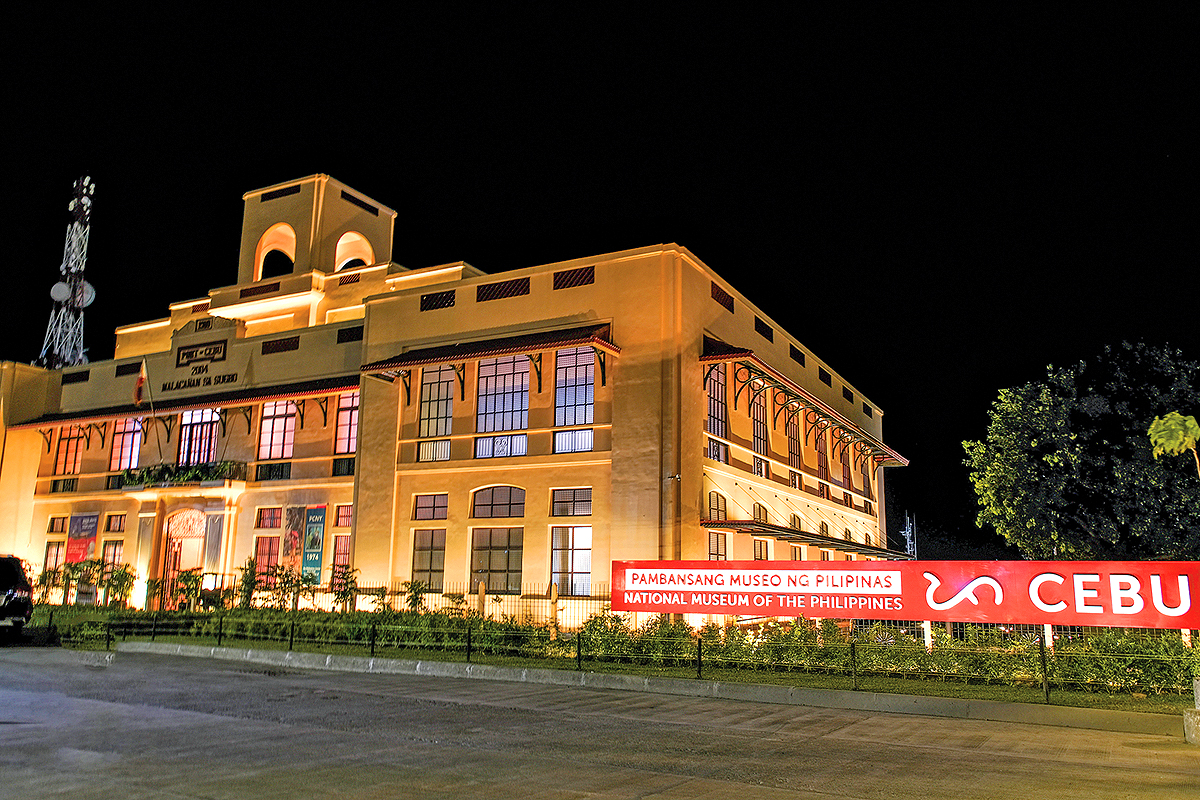Culture
5 Filipino Films That Continue the Conversation on Women Empowerment
Filipino feminist films everyone, in all genders, should revisit.

It took many centuries to achieve the kind of freedom we have now. Contrary to popular belief that women are weak, it is known that women took a significant part in shaping the ideology on bravery and empowerment.
During the pre-colonial era, tribesmen and communities turned to women for war advice and blessings. Cross-dressing was encouraged and, of course, communities seemed to believe no gender roles, since they accepted other genders on the spectrum, as well.
Babaylans were also treated with respect as priestesses or religious practitioners, healers, and mediators in the tribe. Through time, especially during Spanish colonization, women’s role in the society gradually changed; the Spanish imposed ideologies of conservatism and patriarchy.
But time is also the only proof that with its tides of changes, women’s roles in the society are unique in a way that women became flexible, empowered and sincere. From being powerful leaders in tribes during the pre-colonial era until today’s adapting and thriving to smash the patriarchy, women’s parts to play is no doubt impossible to neglect.
Here are five Filipino feminist films everyone, in all genders, should revisit.
INSIANG (1976)

Photo Credits to Cine Material: https://www.cinematerial.com/movies/insiang-i77740/p/oy2prxqz
Starting the character off as a timid innocent girl, Insiang was set to live her life in the slums where her sexuality was used against her, especially by her mother.
Insiang is played by Hilda Koronel. Her character takes us back to the historical meaning of being a woman. The film also portrays different societal issues like poverty and patriarchy. Because of the series of hardships she experienced, Insiang then learned how to use her gender and bravery.
Lino Brocka’s masterpiece shows us that a woman being brave isn’t wrong.
BATA, BATA PA’NO KA GINAWA? (1988)

Photo credits to TFC TV: http://tfc.tv/episode/details/41031/bata-bata-paano-ka-ginawa-2016
Chito Roňo, as always, restores our hope in Philippine cinema. Although this film has been published decades ago, the issue of women empowerment tackled is still relatable until today.
Played by Vilma Santos, Lea Bustamante shares the importance of women in the family building. Challenged by society’s patriarchal system, Lea plays the role of being a working mother, who has two children she raised alone.
Altogether, Lea shows how society views womanhood, motherhood, and parenthood.
DIE BEAUTIFUL (2016)

Photo Credits to IMDb: https://www.imdb.com/title/tt6186430/mediaviewer/rm3387360512
Trisha’s story—like many trans women, struggled being accepted by her family and society. This film takes us back to the reason why people love and how a certain person, though discriminated, chose to show love to everyone she met.
Die Beautiful, directed by Jun Robles Lana, also shows how a trans woman became a mother and at the same time, fulfilled her dreams to become a beauty queen.
Trisha, played by Paolo Ballesteros, inspired many with her positivity, vibrancy and determination to become a woman she wanted to be.
KA ORYANG (2011)

Photo Credits to IMDb: https://www.imdb.com/title/tt2097285/
Set during the Martial Law in 1970’s, Ka Oryang is a film that speaks about women’s part during these dark times. Ka Oryang is directed by Sari Lluch Dalena. Oryang, played by Alessandra de Rosi, is a student of the University of the Philippines who has been exposed to immersions in the countryside.
She became a medical volunteer that helped wounded fighters where she met Ka Noli, played by Joem Bascon, who became her boyfriend. Ka Oryang also discusses other societal issues during the Marcos era.
The film appeals to the audience by portraying women’s sufferings to protect men who were imprisoned by the military. This film will also take our minds off the typical women definition that women should be prim and proper.
SAKALING HINDI MAKARATING (2016)

Photo Credits to Nood: http://www.nood.ph/sakaling-hindi-makarating-review/
Another Alessandra movie takes our mind into traveling around the country. Cielo, Alessandra’s character, nurses her heavy and broken heart after a break-up. Postcards kept coming into her doors with artworks attached with each. She felt the love of the unknown author and decided to travel with the postcards as her guide.
This movie shares how a certain woman, just like many us, thirsts for love and self-love. Human as we are, love breaks us but finding ourselves will help us know ourselves better.
Sakaling Hindi Makarating also depicts that there are circumstances beyond our control and that each road of uncertainty is a taste of learning.
These films of different times show that women empowerment never stopped thriving.
Time will tell the story of how things have changed, but women empowerment and their role in the community development until today is never-changing. In fact, women’s struggles and fearlessness, as a microcosm to bigger societal issues, are continually discussed in modern times through films.
Culture
Cebuano Pride: The National Museum of Cebu

Pride of Cebu
By Eva Gullas
photos courtesy of DOT

Cebu City Tourism’s Neil Odjigue, Cembeth Hortillano and CCTC Chairperson Joy Pesquera

Museum Director Jeremy Barns, Maryanne Arculli, Andronik Aboitiz and wife Doreen, Amanda Luym

Some of the abstract art from the New York collection

Writer Eva Gullas beside Elmer Borlongan’s Battle of Mactan
Culture
The Uncommon Traditions that Mexicans and Filipinos share when celebrating the Day of the Dead.

Dia de los Muertos
By Allain Dumon Fonte
The 2nd of November is All Soul’s Day, a holiday that is very important to many Filipinos to remember our loved ones who passed on. This is also widely celebrated in Mexico as “Dia De los Muertos” or in English, “The Day of the Dead”. And Mexicans celebrate the 2nd of November grander than they celebrate Christmas. Well, you can witness it from the Disney movie, “Coco”.
As All Soul’s Day or Dia de los Muertos is about to end, here are some interesting traditions and superstitions that Filipinos and Mexicans share:
1. IT IS NOT ON THE 31st OF OCTOBER
Dia de los Muertos or All Soul’s Day is not practiced on October 31st or on the Hallow’s Eve as many other western cultures practice; but we celebrate it on the 2nd of November. We celebrate November 1st as All Saint’s Day or the Day of the Holy, while in Mexico they call it Dia de los Innocentes or Dia de los Angelitos to commemorate the children who died too early in life.
2. THE RITUAL
Both in Mexico and in the Philippines, we visit the grave of our loved ones and we clean it well. This is a ritual to honour their resting places and to let them know that they are never forgotten.
3. FLOWERS INVITE SPIRITS
In Mexico, they believe that the scent of flowers attract spirits. So the flower offerings are invitation to their dead loved ones to visit the living families. While in the Philippines, we believe that flowers offered to the dead exalt the souls and somehow fill in the sadness that we feel when missing our dead loved ones.
Most of the time, Filipinos choose all-white flowers to offer because white is the absence of colour, which means the absence of Joy and happiness. White also symbolises purity of soul which we hope our dead loved ones will attain as they journey to heaven. While in Mexico, they have the yellow Mexican marigolds as the official flowers of the dead that will guide them in their journey to the afterlife.
4. THE LEGEND OF THE MONARCH BUTTERFLIES
Both cultures believe that monarch butterflies are dead loved ones who visit us and show their appreciation that we have not forgotten them. A presence of monarch butterflies also means that our dead loved ones are always there guiding us and looking after us.
5. A PICNIC IN THE GRAVEYARD
Spending a night at the graveyard and picnicking with the rest of the family may sound very creepy to many; but to both Filipino and Mexican cultures, picnicking and spending a night at the cemetery is a must to show our love to our dearly departed. It is the only time in the year that families gather and tell stories of the dead loved ones and how colourful or how great their lives were.
6. FOOD FOR THE DEAD
In Mexico, they have what they call “ofrendas” or an altar where the pictures of their dead loved ones are displayed and offered with flowers, candles, and their favourite food. Very similar to the Filipino culture of cooking the favourite food of our dead loved ones and everyone in the family enjoys the food for dinner.
My family tradition involves me driving all the way to Colon street and buy that famous Snow Sheen’s “pancit canton”. This is my granddad’s favourite snack. Sadly, the old Visayan Restaurant is no longer there. My late uncle and my late grandpa love their sweet ad and sour fish. We also set up an “ofrenda” on their graveyard and eat their favourite food while picnicking in the cemetery. We do not spend a night in the cemetery; but while we are picnicking there, we usually play the songs of Pilita Corrales and Susan Fuentes that my late grandpa used to listen every afternoon while enjoying his coffee, pan de sal, and pancit canton.
What about your family traditions? Share your thoughts by commenting to this article.
 MODEL: Michael Joseph Mortola Enriquez & Alexis Wingfield
MODEL: Michael Joseph Mortola Enriquez & Alexis Wingfield
PHOTOGRAPHER: Gianne Paolo Anciano
HMUA/DESIGNER: Hazel Ocaba
STYLING: GPA Lifestyle + Clothing
Culture
Catch Ted Lasso the Emmy Award Winning Comedy Series on Apple TV+

Rating: *****/ *****
The multi award–winning comedy series airing on Apple TV+ is one of my favorite shows. Ted Lasso starring Jason Sudeikis is about a fun good-natured American football coached hired by a British soccer club (AFC Richmond in London) to become their new coach. In spite of the fact that Ted has no experience or knowledge about British football/soccer, his positive demeanor and charm helps him overcome the animosity of the team’s players, staff and fans. Eventually Ted wins over the team and the locals as they fight for position in the English Premier League.

The show won the 2021 Primetime Emmy Award for Outstanding Comedy Series and 7 Emmy Awards in its 2 seasons and Season 3 is just around the corner. You can catch Seasons 1 & 2 of Ted Lasso on Apple TV+
-

 Design3 months ago
Design3 months agoFilipino graphic designer makes history, joins Switzerland’s Museum of Avant-garde among genre’s greats
-

 Events4 weeks ago
Events4 weeks agoFlying Tiger Copenhagen Lands in Cebu
-

 Events2 months ago
Events2 months agoBVLGARI in Cebu
-

 Events2 months ago
Events2 months agoTrade in Your Old Watch and Save Big on a New Timepiece at The Watch Store
-

 Design3 months ago
Design3 months agoPottery Barn and West Elm Launches Designer’s Rewards Circle in Cebu
-

 Eats2 months ago
Eats2 months agoA Moving Feast: Cebu Food and Wine Festival 2024 Opens in NUSTAR Resort
-

 Events3 weeks ago
Events3 weeks agoThe First NUSTAR BALL
-

 Events2 weeks ago
Events2 weeks agoA Feast for the Senses











You must be logged in to post a comment Login